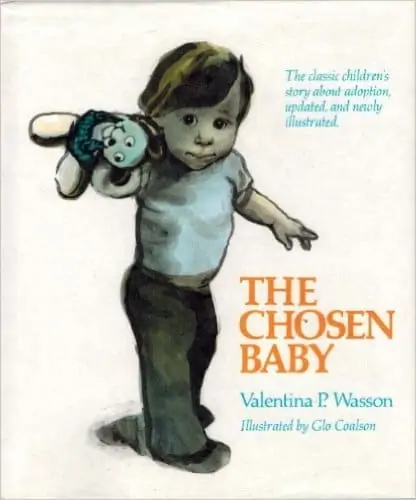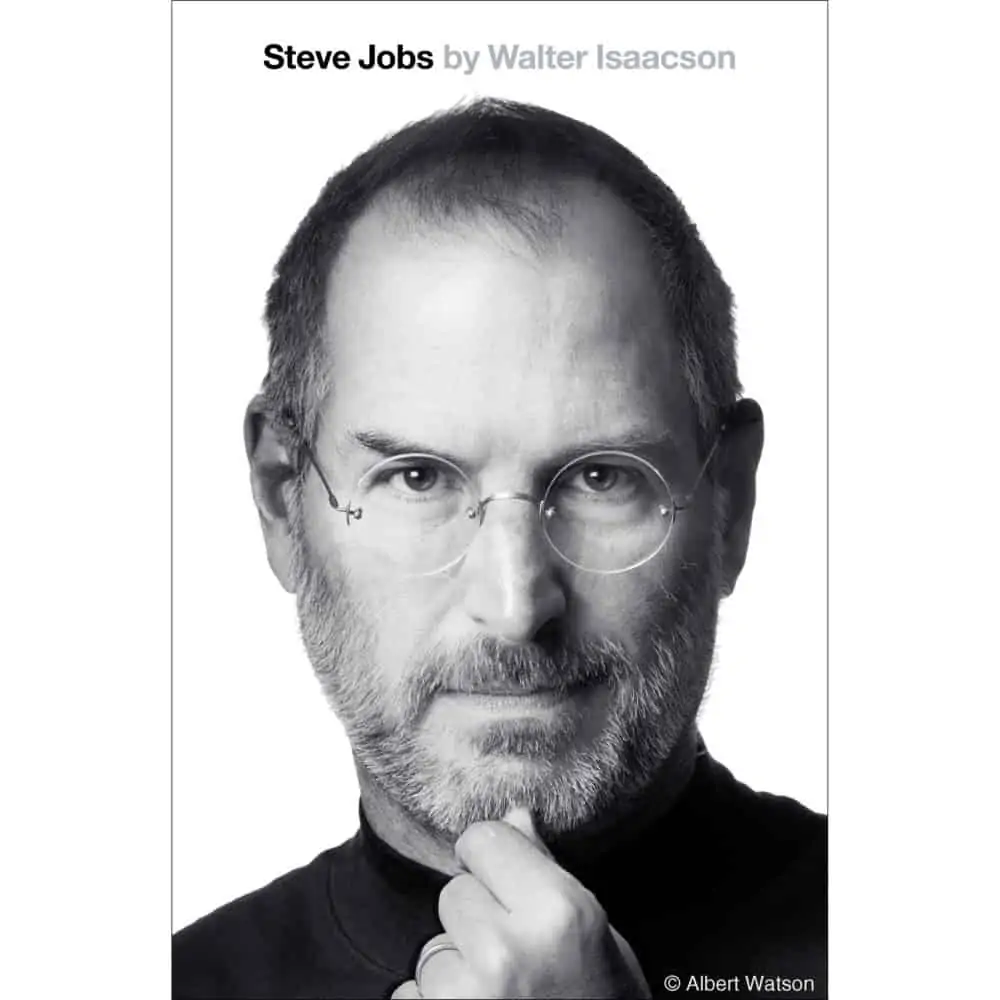What Adoption Did to Steve Jobs
You may wonder what a blog post entitled “What Adoption Did to Steve Jobs” is doing in a blog about executive recruiting. However, adoption is the reason I became an investigative journalist and then an executive recruiter. In fact, my adoption experience is fundamental to all that I do.
Indeed, our childhood stories of origin shape who we are and what we do. For this reason, I recommend the movie Steve Jobs, directed by Danny Boyle and written by Aaron Sorkin. Notably, the feature film deepens our understanding of what adoptees experience their whole lives and what motivates them.
Steve Jobs the Movie
Venture capitalist Stewart Alsop suggested that I go see the movie Steve Jobs when it first came out. Somehow, he intuited how much the Apple founder and I had in common. First, as a kid, I lived a stone’s throw from where Jobs grew up. Second, our parents adopted us as infants. The trifecta? Computing fascinated us. Steve Jobs and Steve Wozniak created the personal computers that, in turn, captured my imagination. From my Apple IIe onward, I have acquired dozens of Apple computers and devices over the years. In doing so, I have developed a close — albeit imaginary — relationship with Apple Founder Steve Jobs.
What Adoption Did to Steve Jobs: It Made Him Who He Was
In so many ways, Steve Jobs’ iconic persona seems a product of the adoption experience. Adoption made Steve Jobs who he was. Screenwriter Aaron Sorkin conveys that influence in this scene featuring Michael Fassbender as Steve Jobs and Jeff Daniels as former PepsiCo-turned-Apple CEO John Sculley. The scene laid me bare.
Adoptees Are Told They Were Chosen

Many well-meaning adopted parents read The Chosen Baby out loud to their adopted toddlers. Yet, the children’s book suggests adoptees are chosen and special.
But Adoptees Aren’t Chosen
As reassuring as the book may be, The Chosen Baby avoids the truth. An adopted child is not a puppy chosen as the “pick of the litter”. Agencies call prospective adoptive parents to tell them a baby boy or girl is available for them to adopt. No choice is involved.
Furthermore, telling a child he was adopted because he was special can make a child feel insecure. A little girl may end up believing she must remain special to remain adopted.
Most Adoptees Don’t Feel Chosen
For this reason, one adult adoptee who became an adopted parent questioned the premise of The Chosen Baby. She explained her thinking in a review of the book on Amazon:
“I still had the original book so I re-read it and soon understood the problem. In this book, the social worker is telling the prospective parent that they would find just the right baby for her, and not to worry if they didn’t feel that baby was what she wanted, they would find her another one. My mother, whom I loved dearly, used to tell me that she had sent a baby back. She said she had a big head. I’m sure from her perspective she was trying to make me feel special, but did it?”
The Flip-Side to Being Chosen
Many adoptees worry that adopted parents may un-adopt them if they’re not special enough. Interestingly, that primal fear produces the need for overachievement.
“It’s having no control. You find out you were out of the loop when the most crucial events of your life were set in motion. As long as you have control . . . I don’t understand people who give it up.”
— Steve Jobs (Aaron Sorkin)
Jobs Driven By the Pain of Adoption
In his book Steve Jobs, biographer Walter Isaacson wrote that “Jobs confided to close friends that he was driven by the pain he was feeling about being put up for adoption and not knowing about his birth parents.” That drive led him to create an extraordinary persona for himself.
Jobs Was His Own Creation
Steve Jobs became his own creation. Deep down, many adult adoptees know we are not the reflections of our adopted parents. Consequently, we must create ourselves.
His entrepreneurial persona emerged in high school when Jobs cold-called Bill Hewlett, the co-founder of Hewlett-Packard, to request leftover electronic parts. As luck would have it, Hewlett answered the phone and, impressed by Jobs’ initiative, offered the young Jobs an internship. Jobs famously went on to attend Reed College for just one semester. After he dropped out, he continued auditing courses, including a calligraphy class taught by a Trappist monk named Robert Palladino. In essence, that course informed his design sensibility of the Macintosh. Jobs later connected the dots in a commencement speech he gave at Stanford University.
Undoubtedly, few understood the nuances of Steve Jobs’ inner life as well as Jonathan Ive, Apple’s Chief of Design:

“So much has been written about Steve, and I don’t recognize my friend in much of it. Yes, he had a surgically precise opinion. Yes, it could sting. Yes, he constantly questioned. ‘Is this good enough? Is this right?’ but he was so clever. His ideas were bold and magnificent. They could suck the air from the room. And when the ideas didn’t come, he decided to believe we would eventually make something great. And, oh, the joy of getting there!”
— Jonathan Ive, Apple Chief of Design
Photo Credit: Albert Watson
I Did Not Know Who My Birth Parents Were
As an adoptee, I did not know who my birth parents were. The court sealed my adoption records, and they remain sealed to this day. Additionally, the court amended my birth certificate, which lists my adoptive parents’ names as though they gave birth to me. The State of California gave me a new identity as if it had dropped me into the witness protection program.
Adoption is Primal Trauma
Like Steve Jobs, my family of origin gave me up. As a result, I have spent a lifetime understanding what losing one’s birth mother and subsequent foster mother does to a person. In fact, many adoptees go to great lengths to process adoption trauma, so they can lead healthy lives. Interestingly, Steve Jobs went to India for 7 months when he was in his 20s. Clearly, the experience was transformational. Upon his return, Jobs did what no one had done before: he founded Apple.
Yet Adoption Can Be Freeing
A friend of Jobs, Greg Calhoun, told Walter Isaacson,
“Steve talked to me a lot about being abandoned and the pain it caused. It made him independent. He followed the beat of a different drummer, and that came from being in a different world than he was born into.”
— Greg Calhoun, Friend of Steve Jobs
For Steve Jobs, being different as an adoptee became “Think Different”, the legendary Apple tagline. In the end, adoption freed him.
Photographer Albert Watson took the iconic photo of Steve Jobs. The short video below explains how the photographer created the epic photograph and reveals why Steve Jobs chose it as his favorite.
Childhood Inspiration Informs Core Values
If you’re interested in how childhood experiences shape who we become and what we do, check out my blog post on Silicon Valley diversity. I reveal how former American Express CEO and current General Catalyst Partner and Managing Director Ken Chenault grew up wanting to become a civil rights leader and share a video interview.
Question for the Reader
What childhood experiences shaped what you decided to do for a living?
Thanks for reading! We welcome your comments. If you enjoyed our post, share it with your friends by clicking the buttons below. It makes it easier for others to find the post.



I watched the film and was completely blown away by the statement and the unexpected searing rawness of what he said. Like you I was born in a filing cabinet (!) and adopted at six weeks. It has taken me a long time to get here. I had this big fear all my life that if I did not please people something devastating would happen, I would be sent back. It never happened of course but I have pushed and pushed to achieve and over achieve often at high personal expense and find myself now leading in my role as chief executive. I am so grateful people have found me during my journey and lifted me on and encouraged me deeply and every day to find my authentic Self. I wish you well my friend, thank you so much for this piece.
Wow! Chosen. I was adopted, and I was anything but chosen. I have struggled most of my life with feeling inferior and the need to be good enough to be “chosen”. I’m in my fifties now, and I’m finally clear about who I am and free of the need to be chosen. You see, I was tossed around between orphanage and mother and various foster homes until I was five. In official social services records that I recently acquired it states that one family returned me because I fidgeted with my fingers. The family that adopted me later made it a point to tell me that they “got me” to do housework, which I did dutifully. Chosen? Who needs it?
I could write a book about my situation, however, I was adopted at six months old, in Montreal, by parents from Ontario. My adoptive parents went through a hallway, glassed in allowing them to look at the babies available. My mother favoured a blond boy but my dad wasn’t moved. Finally the nuns brought me out as apparently I was just signed over for adoption( untrue). So this is how I grew up in Ontario. Years later it cost me $450.00 for Social Services to check my records, find my birth mom and initiate contact. Now that I have met birth family I know that what adoptive parents are told about their chosen baby is a crock…and I have heard similar stories over and over again ( not mentioned here). That’s why we Adoptee’s need the truth early in life to be able to find our place in ie culture, language, traditions, medical history….to feel who we really are….thanks for listening….all good..now…
Many times I would read criticism of things Steve Jobs would do or so, and I would think, that is such adopted-guy behavior. These people have no clue. They think it’s him, but I was willing to bet so much of it was a result of adoption, and I so I was delighted to read your article. You got it. Thank you.
Anne Heffron, author of You Don’t Look Adopted
Very powerful review and movie scene. Thanks! P.
Wow! Chosen. I was adopted, and I was anything but chosen. I have struggled most of my life with feeling inferior and the need to be good enough to be “chosen”. I’m in my fifties now, and I’m finally clear about who I am and free of the need to be chosen. You see, I was tossed around between orphanage and mother and various foster homes until I was five. In official social services records, which I recently acquired, it states that one family returned me because I fidgeted with my fingers. The family that adopted me later made it a point to tell me that they “got” me to do housework, which I did dutifully. Chosen? Who needs it? Yes, I believe that adoptees are too often thought of as chattel.
Although I am not adopted, I am an Adoptive Mom, and I have always believed that children choose their parents before they come to this earth. I guess from a spiritual perspective I have seen it so many times, I believe the Universe has a bigger plan…
Although I have not seen the movie Jobs, I intend to. I wonder if I will feel differently after I see it?
as an adoptee, I agree – yes, we do choose our parents but then adoption agencies rip us away from them to give to strangers.
Thank you for your thoughts. I do hope you see the movie and that it begins to shed light on the adoption experience for you. Steve Jobs (Aaron Sorkin) speaks the truth about the adoption experience — a truth that is as wildly complex as it is painful. “It’s having no control. You find out you were out of the loop when the most crucial events of your life were set in motion. As long as you have control . . . I don’t understand people who give it up.” No amount of love from a caring adoptive parent erases the primal wound experienced by many, if not most, adoptees. No amount of love erases the biological part of an adoptee, the biological heritage, and our very genetics. While my adoptive parents are my parents in function, my original parents are my parents in form. I am the sum total of both influences. You can’t have one without the other. I believe, as do many adoptee rights advocates, that both sets of parents have an obligation to help (adult) adoptees heal and to integrate both parts of themselves. Adult adoptees are the only class of Americans denied our original birth certificates, and in turn, a current medical history which has potential life-saving information. Case in point: my birth father’s family had a history abdominal aortic aneurysms. When those aneurysms burst, you can bleed out in a matter of a couple of minutes. Thankfully, I searched for and found my birth parents and he shared that medical history with me so that I can be screened for that issue to prevent a sudden and untimely death. So, to your point, yes, I often like to believe we are spiritually guided in life as if the Universe has a bigger plan for us. Adoptive parenting can be part of that plan, but it is a journey. Please, embrace your whole child, not just the adopted side, or he/she will inevitably feel unloved, if not unloveable.
I was immediately placed in FACS care when I was born. I always knew my birth mother loved me enough to do that. And I was placed immediately in an incredible family. Grew up knowing I was loved so much by them. Told from day one about my adoption. I also had a sibling who threw it in my face constantly that I was not ‘one of them’ and my dear mum would find me sitting in a corner crying my heart out, feeling so alone in the world. My mum would try to reassure me by telling me I was their ‘chosen one’ but my sibling found a way to turn that around. I knew I was loved but always felt alone and inferior, always felt lost and out of place and very different. Despite the love and honesty and encouragement I grew up with. I found my birth mother (with my mum’s encouragement – when I was a teen, she saw and encouraged me to ‘find my people and complete the circle of my life,’ but I loved and respected her too much to turn her life upside down. Just over 10 years after her passing, I found my birth mother. She acknowledged and accepted me into the last two years of her life. I finally felt complete. I was always shy and unsure of myself and for my life, I was successful, children of my own, education and a very great well paying job (oddly, in technology). Maybe I was driven to achieve the little I did manage and didn’t achieve the drive and success of Jobs, but I know every circumstance of my life is affiliated with being adopted, and with my Lord and Saviour Jesus Christ.
I grew up in the Bible Belt and was told first I was chosen/special, then I was no worse than anybody else, then there was nothing wrong with me, then when I became a big failure, I was treated like a crazy outcast and failure.
I didn’t give being adopted much thought until I was middle aged and picked up Primal Wound and Journey of the Adopted Self. I saw then why I had been failed in life, working hard in the wrong directions because I didn’t know where I came from and didn’t know who I was and consequently hated myself which robs me of the will to do anything. I came to understand my ‘self’ which was half artificial (the adopted side) and half dead (the biological side)
And I filled with rage and depression because I know how hard I tried AND NOBODY HELPED ME OR GAVE ME A CHANCE!
I also was not adopted until age five; the exact reasons for the relative late adoption are not quite clear. Those five years were spent in foster homes, of which I had almost no memories at all. My mother was institutionalized shortly after I was born, and so was not competent to sign relinquishment papers. In addition, the authorities wanted to see if I was turning out “normal.” What my adoptive parents were told about my background is uncertain. For their part, the adoptive parents told me that my original parents “were killed in a car accident” (this was in the late thirties).
So I personally was never given the “chosen” narrative, but I intensely disliked it when others–usually non-adoptees– wrote or spoke about adoptees “being chosen.” I knew very well we were not “chosen.” But the “flip side” of the “chosen” narrative was always there, looming overhead; the threat of being “sent back” to the agency was always held over my head. This was the most frightening part of my adoptive childhood, unbelievably so. It was not an idle threat either; I sometimes could overhear them in the kitchen actually discussing “sending me back.” The resulting insecurity was one of the most–if not THE most–formative influences in my early life
These therefore were the forces at work within me as I entered my teen years and beyond. When it came to choosing a career, it had to be something that I could feel part of, a community, as it were, which was so much greater than myself. This disappeared when I began raising a family of my own. It was only then that I could look back and try to find explanations for my feelings in my early childhood, in foster care. There were NO memories of any interaction with adult figures during that period. Nor were there any memories of a sense of trauma at being removed from my last foster home and into my adoptive home.
I have never met another recruiter who discussed adoption so openly. I was going to write, I’ve never known another adopted person who was a recruiter – and of course that may be true, but is it? Adoptees, we’re always hiding in plain sight.
Thoughtful post and I appreciate you and your approach to your work.
Thank you for stopping by and reviewing my post on Steve Jobs and adoption. It seems we share similar interests. It isn’t every day that I meet an adoptee in the career space – in fact, I think you’re the first. In the interim, I’m dialing up your substack and podcast!